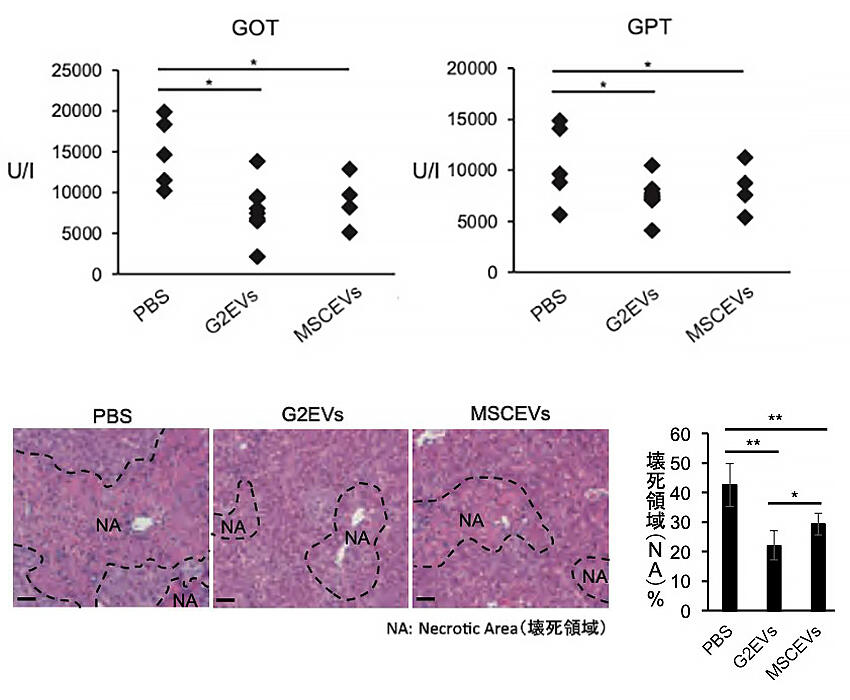The liver is the first immune-related defense organ against various antigens. As such, the liver is prone to acute damage and functional failure as it receives external stimuli. In addition to liver transplantation, liver damage treatment using mesenchymal stem cells (MSCs), which differentiate into various tissues that include bone and fat, has been attracting attention in recent years. MSCs suppress liver inflammation, and extracellular vesicles (EVs) secreted by them exert anti-inflammatory effects. Nevertheless, the development of simpler treatment methods is desired.
A research group at Tokai University headed by Assistant Professor Ai Kotani examined whether EVs secreted by liver cells have anti-inflammatory effects similar to those secreted by MSCs, and whether fatty acids participate in their underlying mechanism. EVs derived from liver cells or EVs derived from MSCs were administered to model mice with liver damage. EVs derived from liver cells exerted anti-inflammatory effects comparable to or stronger than those exerted by EVs derived from MSCs and significantly reduced the levels of serum enzymes as indicators of liver damage (Glutamate-Oxaloacetate Transaminase (GOT) and Glutamic-Pyruvic Transaminase (GPT)).
Furthermore, the researchers focused on the phospholipids that cover the surface of EVs to investigate the origin of the anti-inflammatory effects of the EVs. EVs rich in the fatty acid docosahexaenoic acid (DHA) acted on the liver and bone marrow to suppress inflammation. The researchers also independently developed a novel modification method that enhances the biological effects of EVs (SPREDs). A patent application has been submitted. By applying SPREDs to EVs derived from liver cells, the researchers aim to develop potent anti-inflammatory and tissue-protective treatment against cytokine storms, which are particularly relevant in infectious diseases such as COVID-19.

(PBS: no administration of EVs, G2EVs: administration of EVs derived from liver cells, MSCEVs: administration of EVs derived from MSCs)




